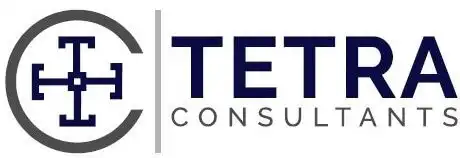South Africa
Business Registration in South Africa: Everything You Need to Know in 2025

Contact Us
- Business registration in South Africa is a first-order process for entrepreneurs looking to tap into one of the most developed economies in Africa. South Africa boasts a strategic location, extensive airline and shipping connections, and global recognition as a major financial hub on the continent, making it a prudent business decision. South African company registration provides local and international market access for firms through a number of trade agreements and customs unions.
- The South African economy offers a politically stable climate, a highly capitalized banking sector, rich natural resources, and well-established regulatory institutions. The government’s growing emphasis on infrastructure, employment, and economic growth further adds to its attractiveness. In the World Economic Forum, South Africa is the leading African country and ranks 3rd among BRICS nations, testifying to its economic importance.
- However, it is essential to remain compliant with the regulatory requirements, until January 17, 2025, the Companies and Intellectual Property Commission (CIPC) undertook mass deregistration of over 800,000 companies due to non-submission of Beneficial Ownership Declarations and Annual Returns. For the sake of new companies, Tetra Consultants is here to make registration hassle-free.
Things you need to know for business registration in South Africa
Understanding business structures
- In South Africa, companies may be organized in several forms, such as sole proprietorships, partnerships, private companies (Pty), and public companies. Each form has specific legal implications, liability considerations, and taxation. For example, a private company restricts the liability of shareholders, but sole proprietors have unlimited liability. It is important to understand these forms in order to comply with the Companies Act and to make sound decisions regarding the legal structure of the business and financial responsibilities.
Selecting a business name
- Choosing a distinctive business name is critical for registration. The name should not be deceptive or close to registered businesses. Business owners can reserve their desired name via the Companies and Intellectual Property Commission (CIPC) prior to formal registration. The process may take seven to 21 working days. A good name boosts brand identity and marketing, hence an important initial step in the registration process.
Registering with CIPC
- All companies are required to register with the CIPC in order to gain legal status. Registration can be completed online through the CIPC website or the BizPortal. Registration involves the submission of required documents, such as identity documents of the directors and proof of business address. The cost of registration is usually economical, depending on the nature of the business and the mode of registration selected. This process is essential to legally operate in South Africa.
Tax registration with SARS
- After being registered with CIPC, businesses are required to register with South African Revenue Service (SARS) for taxation purposes. This entails the application for an income tax number and VAT registration where turnover is over R1 million in a year. Companies should do this registration within 60 days of operation to comply with taxation requirements. Correct tax registration is important in order to avoid penalties and for easy financial functioning.
Securing necessary licenses and permits
- Certain business industries in South Africa need permits or licenses for the operation. For instance, health care businesses, food services, and entertainment need relevant permits from nearby municipal authorities for initiating operations. The acquisition of the required permits is important so as not to raise legal controversies that may cripple business processes.
Corporate bank account opening
- After registration, it is recommended that companies must proceed with corporate bank account opening to handle finances efficiently. Banks require mostly the company’s registration documents and proof of address to open an account. A separate business account allows expenses to be traced, cash flow to be controlled, and the ease of tax reporting procedures. It also enhances credibility with clients and suppliers by demonstrating a professional image.
Insurance requirements
- South African businesses need to have some forms of insurance to cover liabilities and risks involved in their businesses. Some of the common insurances are public liability insurance, employer’s liability insurance, and unemployment insurance when hiring employees. These insurances cover possible claims and losses, helping the business meet legal needs while giving them peace of mind.
Accounting and record-keeping
- Maintenance of proper books of accounts is a requirement for all registered entities in South Africa. Companies are required to adhere to accounting standards applicable to their business classification and maintain books for seven years. This would include tracking revenue, spending, and tax payments. Accounting properly not only leads to compliance, but it also offers important business performance insights that can be useful in making strategic decisions.
Hiring employees legally
- When hiring workers, companies need to be in accordance with labor legislation by enrolling them into Pay-As-You-Earn (PAYE) tax and social security payments if their profits are more than R40,000 per year. Employers also need to make the Skills Development Levy payments if their payroll is over R500,000 in a year. Knowledge of these responsibilities helps ensure they stay legal and promote a healthy work environment.
Using online registration sites
- The opening of national online registration websites has eased business registration in South Africa considerably. Entrepreneurs will be able to apply for business registration on the internet from websites such as BizPortal or directly on the e-portal of CIPC from January 2025. This shift online not only quickens the pace of registration but also opens avenues for small business to enter through since they can afford offline registration processes.
Conclusion
- It is possible to navigate the terrain of business registration in South Africa as a complicated but rewarding process. At Tetra Consultants, we make this process easier by providing end-to-end services designed to suit your individual requirements. Our experience means that you can register your business effectively and according to local law. We offer an array of basic services such as nominee director and shareholder services, which make your operations smooth yet legally compliant. We also assist you in the acquisition of offshore financial licenses, which allows you to broaden your business horizons internationally. As our team looks after all your registration and compliance issues while handholding you through the entire process, you can solely
Tetra Consultants
Tetra Consultants is the consulting firm that works as your advisor and trusted partner in your business expansion. We tell our clients what they need to know, instead of what they want to hear. Most importantly, we are known for being a one-stop solution for our valued clients. Contact us now at enquiry@tetraconsultants.com for a non-obligatory free consultation. Our team of experts will be in touch with you within the next 24 hours.





